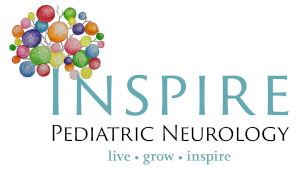Autism Spectrum Disorder
What is Autism Spectrum Disorder (ASD)?
Autism spectrum disorder (ASD) is a complex, lifelong neurodevelopmental disability caused by differences in the brain that typically appear during early childhood and can impact a person’s social skills, communication, relationships and self-regulation. You may hear people refer to the disorder as ASD or autism, for short.
People with autism may behave, communicate, interact and learn in ways that are different from most other people. It is called a “spectrum” disorder because the abilities of people with autism can vary significantly. For example, some people with ASD may be nonverbal while others are able to have conversation but have difficulties with the social rules of communication.
Autism develops before age 3 years and is thought to be a lifelong neurodevelopmental disorder, although symptoms may improve over time. The CDC estimates that 1 in 44 8-year-old children (2.3%) have been identified with autism spectrum disorder. Autism is 4 times more common in boys than girls.
Signs and symptoms of autism in children
Examples of social communication and social interaction characteristics related to ASD can include:
- Avoids or does not keep eye contact
- Does not respond to name
- Does not show facial expressions like happy, sad, angry, and surprised
- Uses few or no gestures (for example, does not point or wave goodbye)
- Does not share interests or enjoyment with others
- Does not notice when others are hurt or upset
- Does not notice other children or join them in play
- Does not play with toys in a typical fashion or engage in imaginative play
Examples of restricted or repetitive behaviors and interests related to autism can include:
- Lines up toys or other objects and gets upset when order is changed
- Repeats words or phrases over and over (called echolalia)
- Gets upset by minor changes
- Has obsessive interests
- Must follow certain routines or rituals
- Flaps hands, rocks body, or spins self in circles
- Has unusual reactions to the way things sound, smell, taste, look, or feel.
Getting help if you are concerned your child has autism
While there is currently no known single cause of autism, early diagnosis helps a child receive the support and services that they need, which can lead to improved quality of life filled with opportunity.
If you or your child’s doctor have concerns for autism, seek early diagnosis and treatment. At Inspire Pediatric Neurology, we provide comprehensive, family-centered, developmental evaluations for both children and adults where there is concern for autism. Our developmental specialist, Dr. Sidhu, also provides expert management of co-occuring neurological conditions, such as seizures/epilepsy and ADHD , for children and adults who already carry an autism spectrum disorder diagnosis.
